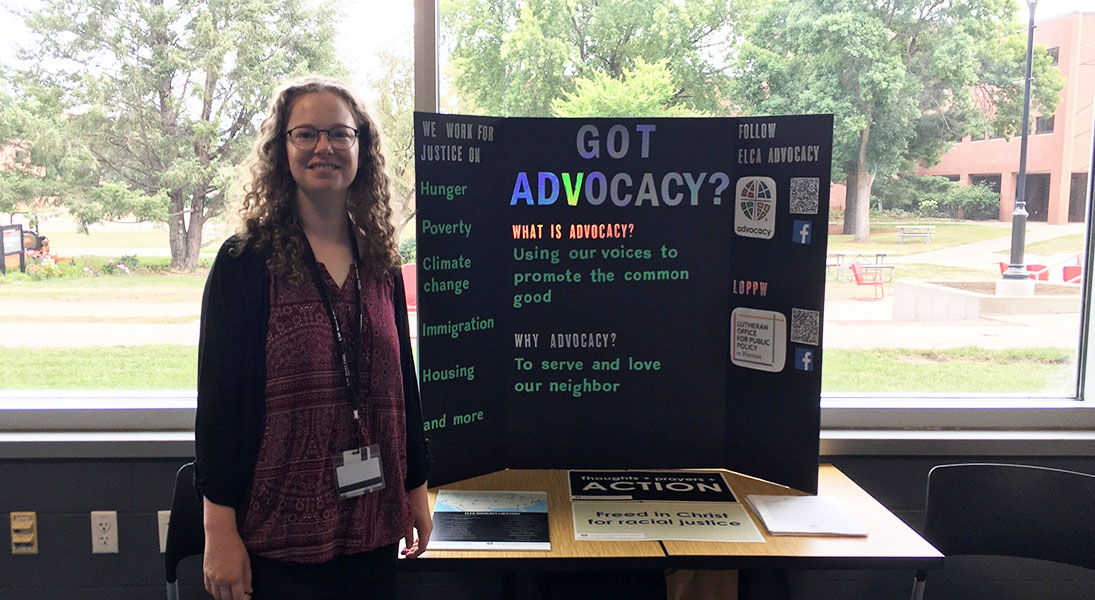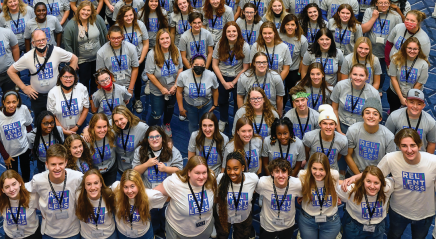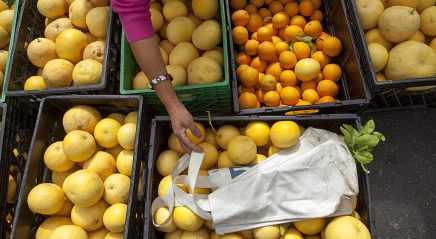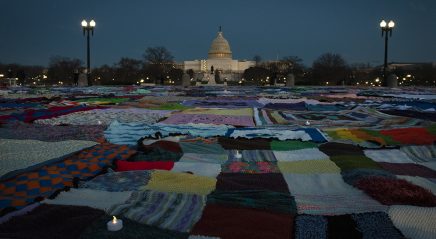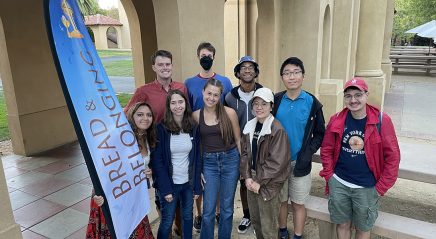Rachel Wyffels isn’t the only future leader in the ELCA who’s passionate about the multiple, entwined facets of social justice, but she’s certainly among the busiest and most-connected.
“I find that a lot of people her age are very interested in social justice issues and climate change, but Rachel might be unique in how much interest she has in individual congregations,” said Tammy Walhof, who, as director of Lutheran Advocacy—Minnesota, supervised Wyffels during her year as an ELCA Hunger Advocacy Fellow. “She’s good at figuring out connections and connecting with people.”
“I’m one of many who are helping to organize and move the conversation along,” Wyffels said.
Wyffels, a first-year Master of Divinity student at Luther Seminary in St. Paul, grew up in Plymouth, Minn., and in 2021 earned degrees in music and religion from St. Olaf College in Northfield. She served as president of the college’s student congregation, played violin in the orchestra and sang soprano in the St. Olaf Chapel Choir.
The fellowship is designed to introduce recent college graduates to faith-based, systemic advocacy work.
After graduation she began her fellowship, working with Lutheran Advocacy—Minnesota, an ELCA-affiliated public policy office. “I began to feel the call to ministry in my late elementary school years,” Wyffels said. “I’ve always been very concerned with social justice issues and climate change in particular. After college I was looking around for opportunities for a service year or something in that line of work, and I saw this Hunger Advocacy job pop up in my state and in my church—it looked incredible.”
The fellowship, offered through ELCA World Hunger, is designed to introduce recent college graduates to faith-based, systemic advocacy work. Wyffels immersed herself in issues related to food and housing insecurity and represented her office in the statewide coalition Homes for All, which pushes for initiatives that promote housing stability.
“I worked with renters’ rights advocates, building associations and social service organizations that are working to expand affordable housing in Minnesota,” she said. “I learned a lot about intersectional justice as it relates to hunger, and talking about a lack of affordable housing as a social problem rather than a personal problem. Migration and hunger are a result of climate change and a lack of affordable housing. In Minnesota the lack of affordable housing is the No. 1 cause of hunger.”
Active engagement
Walhof was particularly impressed with an interactive quiz Wyffels wrote for a well-attended virtual Homes for All event.
“It was a bunch of housing-type questions—the quiz was shown on Zoom, and you’d answer with your phone,” Walhof said. “It was very helpful for the coalition’s work going forward, and it was really fun for an online event where you’re trying to break up the speakers.”
During her fellowship, Wyffels began working on climate action through the Northeastern Minnesota Synod’s EcoFaith Network, especially its growing collaboration with a creation care working group recently formed by the Saint Paul Area Synod.
With a mission to “live out God’s call to be stewards of the Earth for the sake of the whole creation,” EcoFaith provides creation care trainings and other educational resources. The network unites individuals, congregations and other partners inside and outside the synod.
“EcoFaith has been supported at the highest levels of the synod for many years,” Wyffels said. Since July she has served as EcoFaith’s communications coordinator, responsible for a monthly newsletter, Green Blades Rising, that goes out to 2,000 readers. “A goal is for people to have ecosystem conversations in all aspects of their faith life.”
Wyffels “has a lot of gifts that will be important for the future of the church.”
In addition to working on housing and green initiatives, Wyffels last fall led a four-week instructional series, “Faith and Democracy,” through the Abide program, part of the ELCA Young Adult Ministry.
“We covered different topics related to our faith and why we are talking about voting as people of faith,” she said. “We also talked about historical and present inequalities in voting rights and what that means in the present context, and the importance of local and state elections, advocacy and community organizing.”
Walhof said she was heartened to see Wyffels and other young adult leaders “live their faith into these big, world concerns in ways that are beneficial to the church and congregations and synods.” She said she could easily picture Wyffels serving a congregation, “engaged in the most active ways with these issues.”
Wyffels “has a lot of gifts that will be important for the future of the church and the future of the impact in the world we can make,” Walhof said. “She fears what her generation is going to have to deal with, she fears what the world may look like, but that’s where her work with EcoFaith and creation care is important—it helps us to know what we can do in communal ways and individual ways, and how this gives us hope.”




